Native American Heritage Month 2022
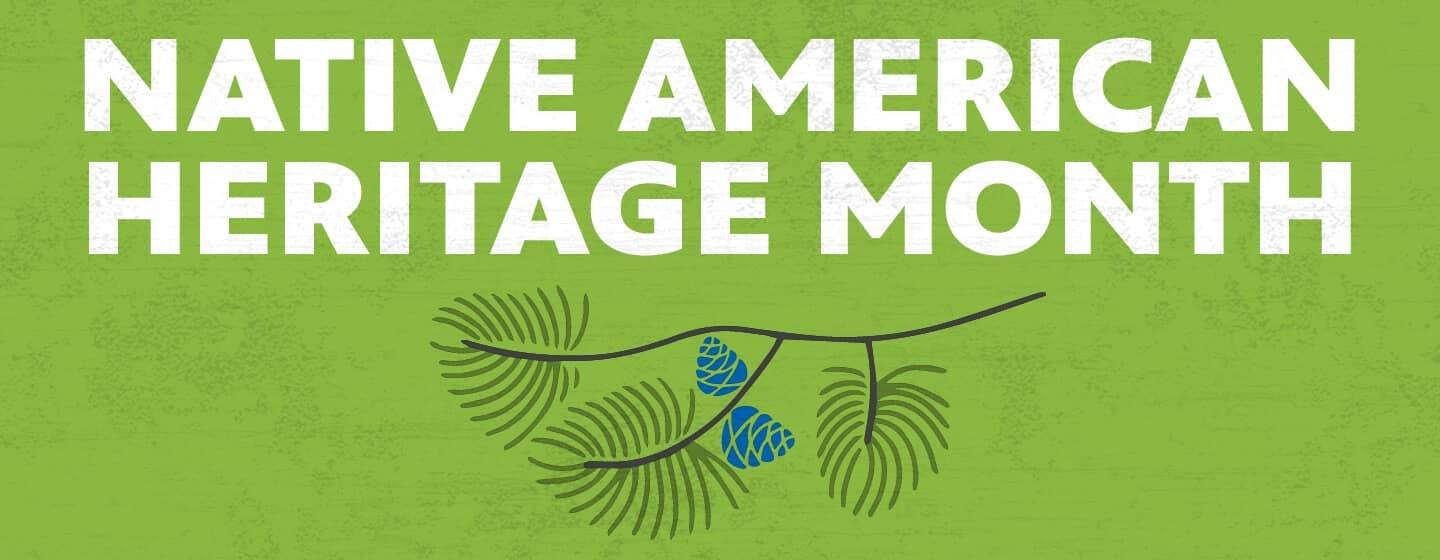

Throughout November, PBS North Carolina celebrates Native American Heritage Month with new film premieres and curated content collections. Learn more about the history, culture and contributions of Indigenous peoples during Native American and Alaska Native Heritage Month.
Select programs are featured below and more shows are available in our TV Schedule listings.
Experience the story of the Oscar-winning Indigenous artist from her rise to prominence in New York’s Greenwich Village folk music scene through her six-decade groundbreaking career as a singer-songwriter, social activist, educator and artist.
Streaming now on video.pbsnc.org & the PBS Video app.
Buffy Sainte-Marie won an Oscar for her song "Up Where We Belong."
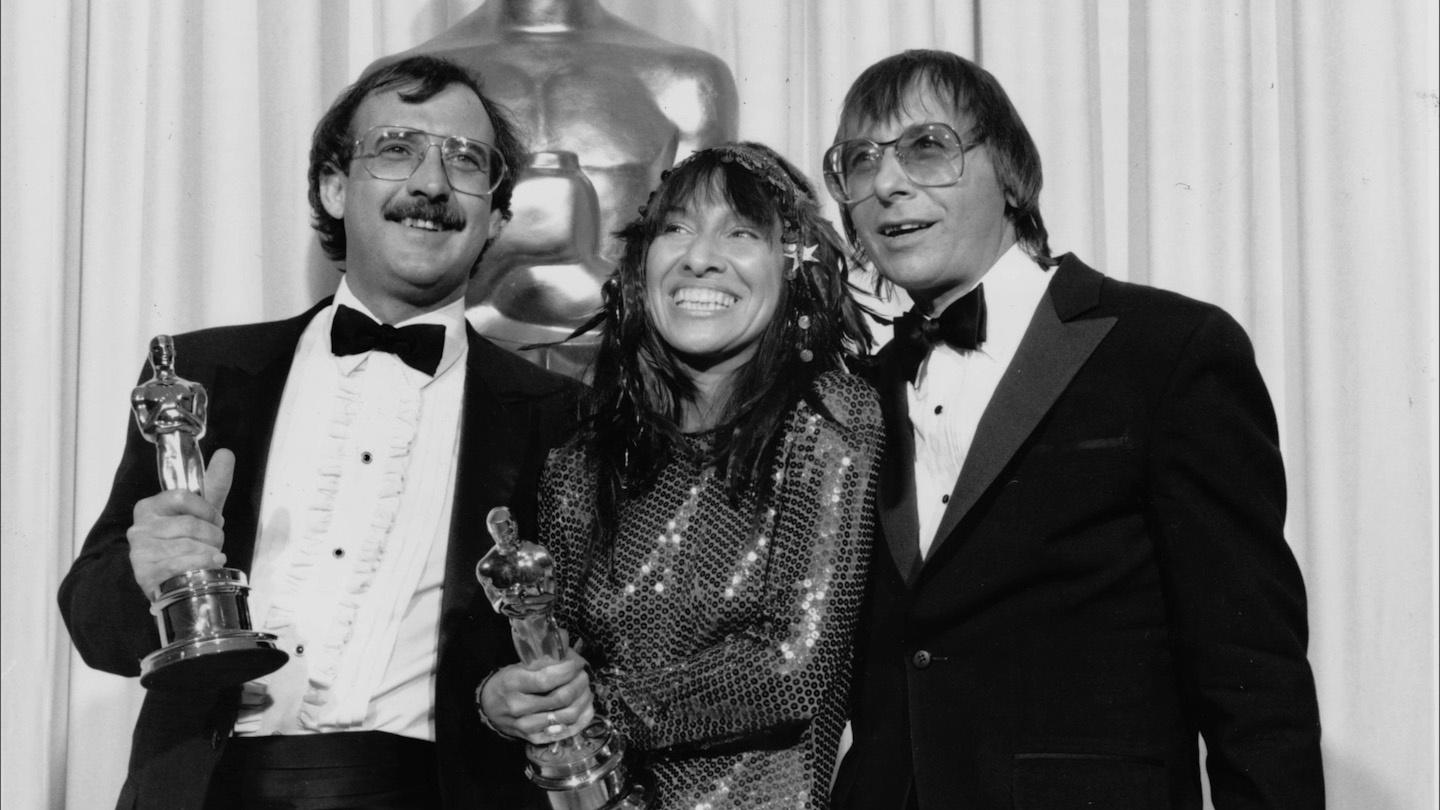
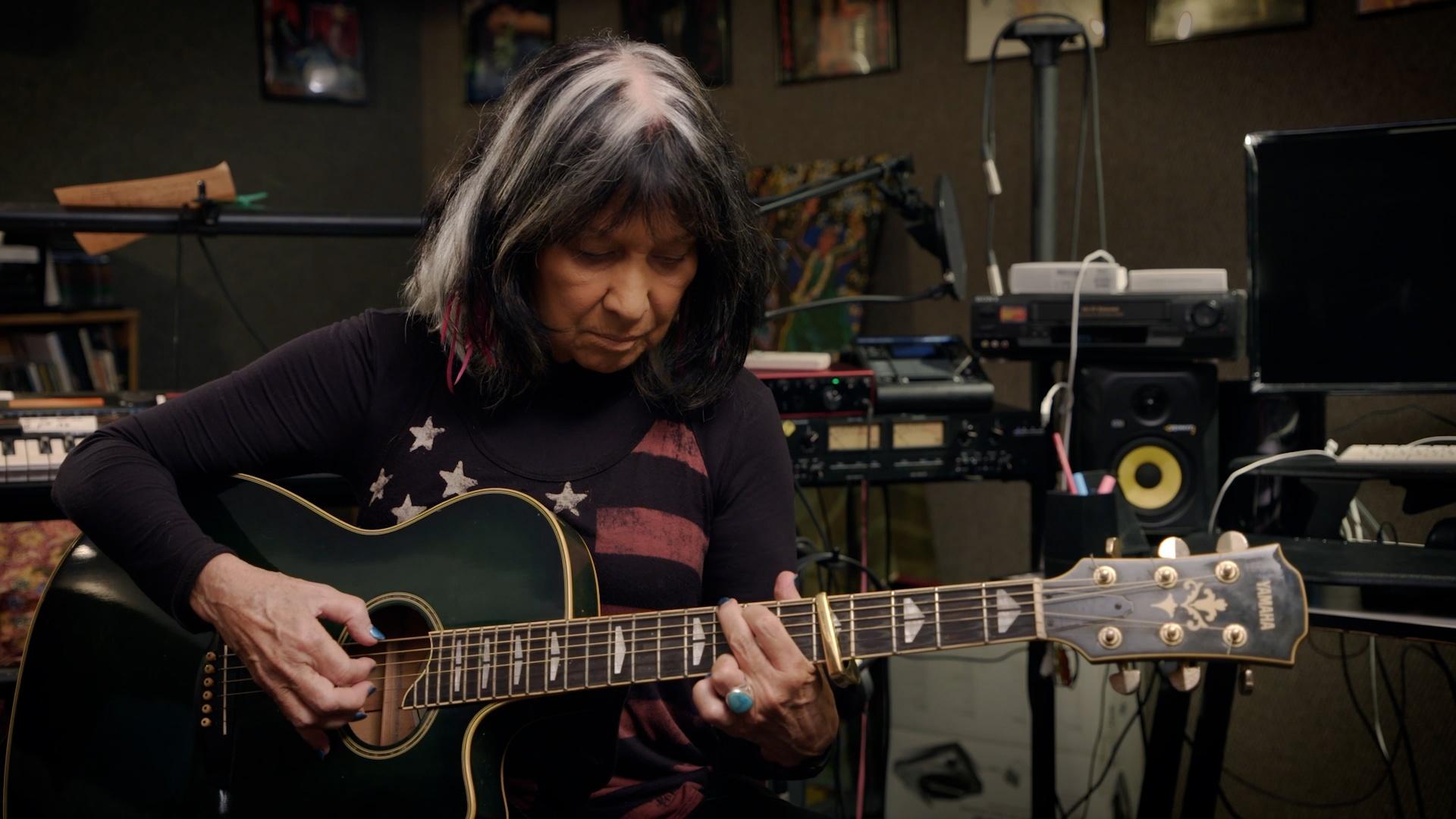
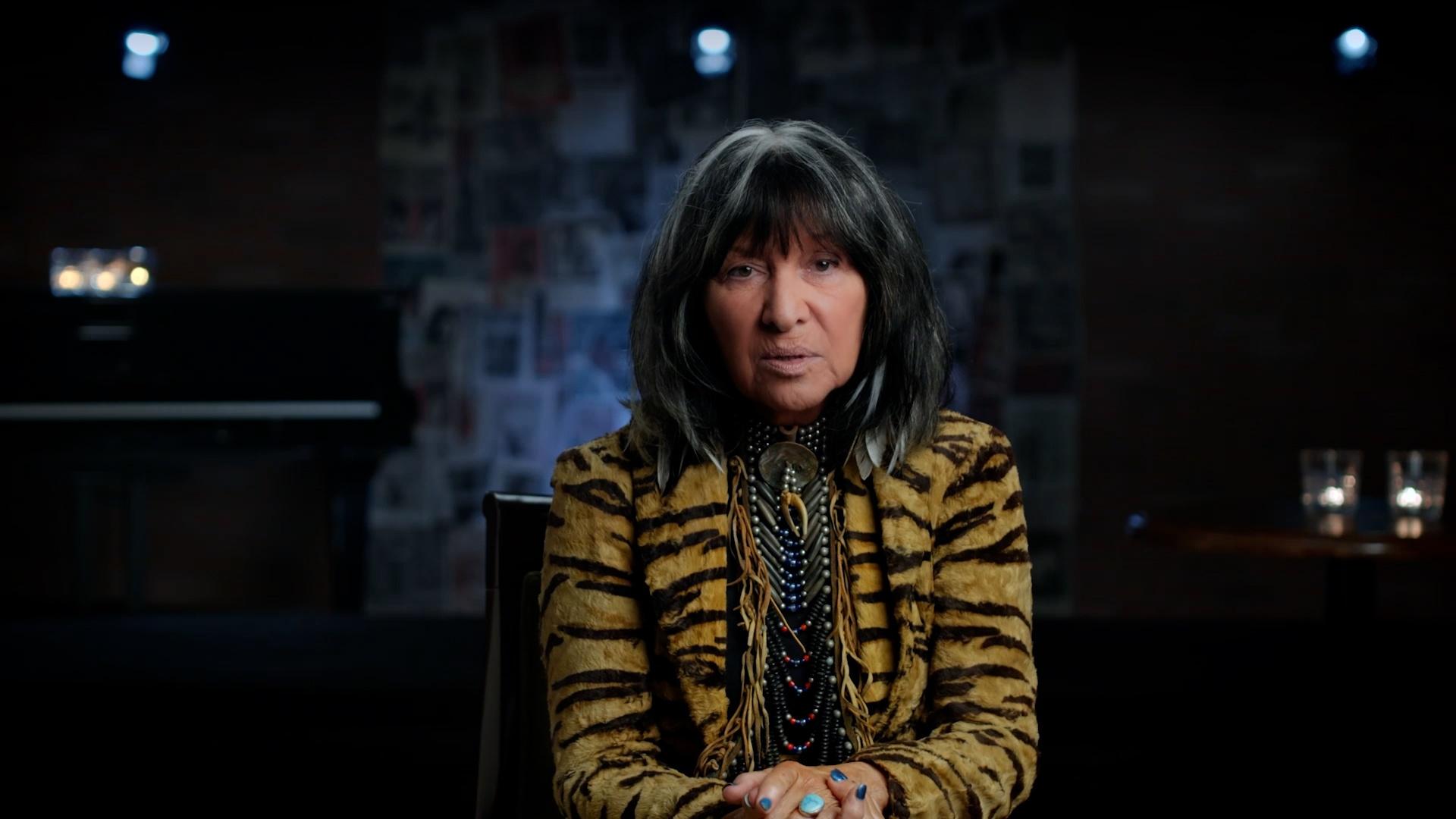
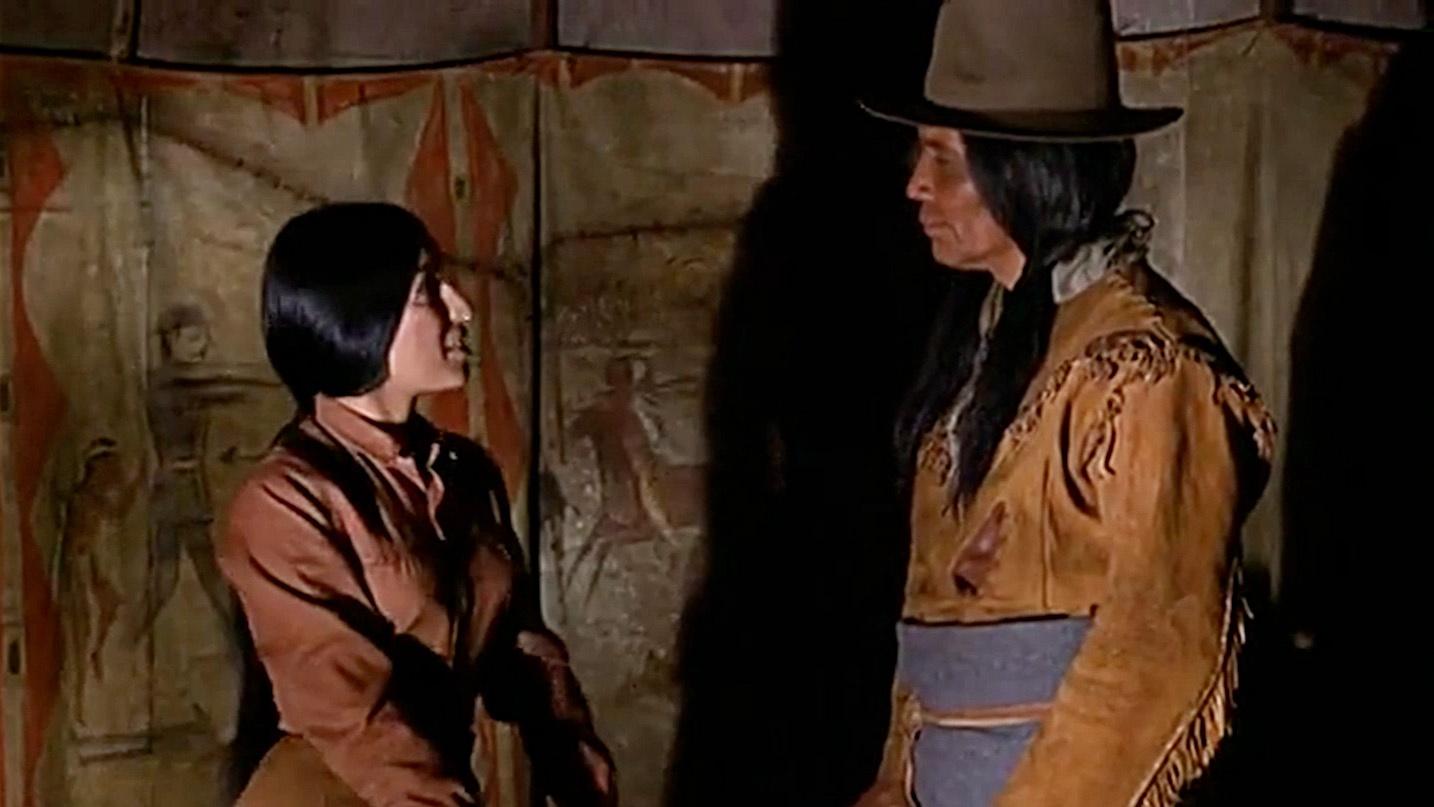
Delve into the enigmatic life and mind of the Pulitzer Prize-winning author and poet N. Scott Momaday, best known for “House Made of Dawn” and a formative voice of the Native American Renaissance in art and literature.
Streaming now on video.pbsnc.org & the PBS Video app.
"Kill the Indian in him, and save the man.” This was the guiding principle that removed thousands of Native American children and placed them in Indian boarding schools. Among the many who died at Carlisle Indian Industrial School were three Northern Arapaho boys. Now, more than a century later, tribal members journey from Wyoming to Pennsylvania to help them finally come home.
Streaming now only with PBS NC Passport on video.pbsnc.org & the PBS Video app.
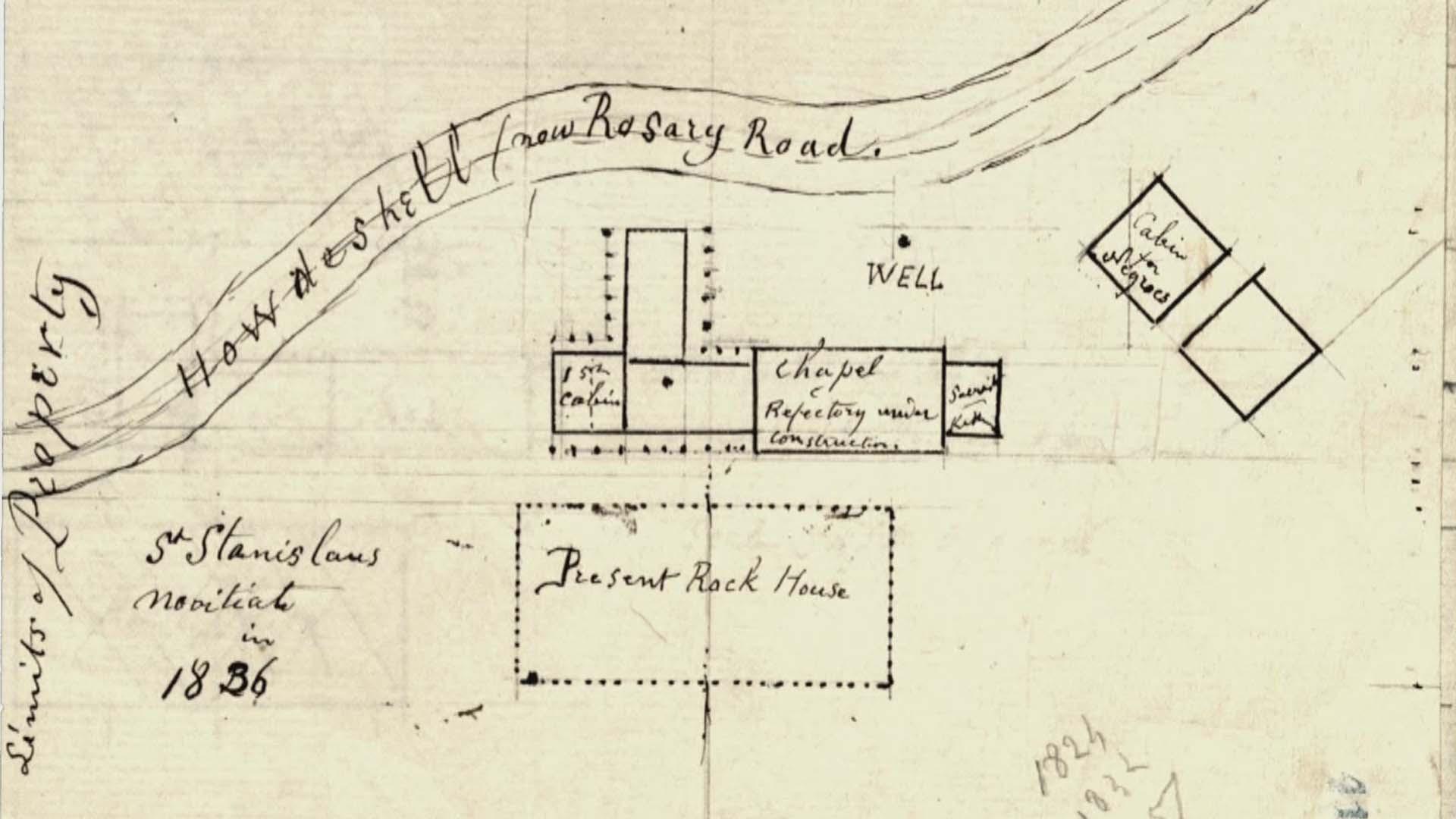
PBS NewsHour
For the first time, the U.S. government released a report detailing the abuse and mistreatment of Native children who were forcibly sent to boarding schools in the 1800s. NewsHour’s Gabrielle Hays joins Geoff Bennett to discuss what she uncovered. (Originally reported May 21, 2022.)
"Searching for Sequoyah" spans two countries and three Cherokee nations and details Sequoyah's life and mysterious death. Chronicling his travels from east to west, the program recounts his final journey to Mexico where the aging Cherokee man hoped to reunite the "Mexican Cherokee" with the Cherokee nation after their removal to Indian Territory in present-day Oklahoma.
Streaming now on video.pbsnc.org & the PBS Video app.
Lakota John is from the Lakota and Lumbee tribes, and started his musical journey on a diet of classic rock, classical and jazz music, blues and roots. Inspired by '90s and 2000s jams, Lakota John's sonic signatures combines with tight arrangements and unique storytelling. With a "write first, instrument later" approach, Lakota John's music is the support to carry the story further.
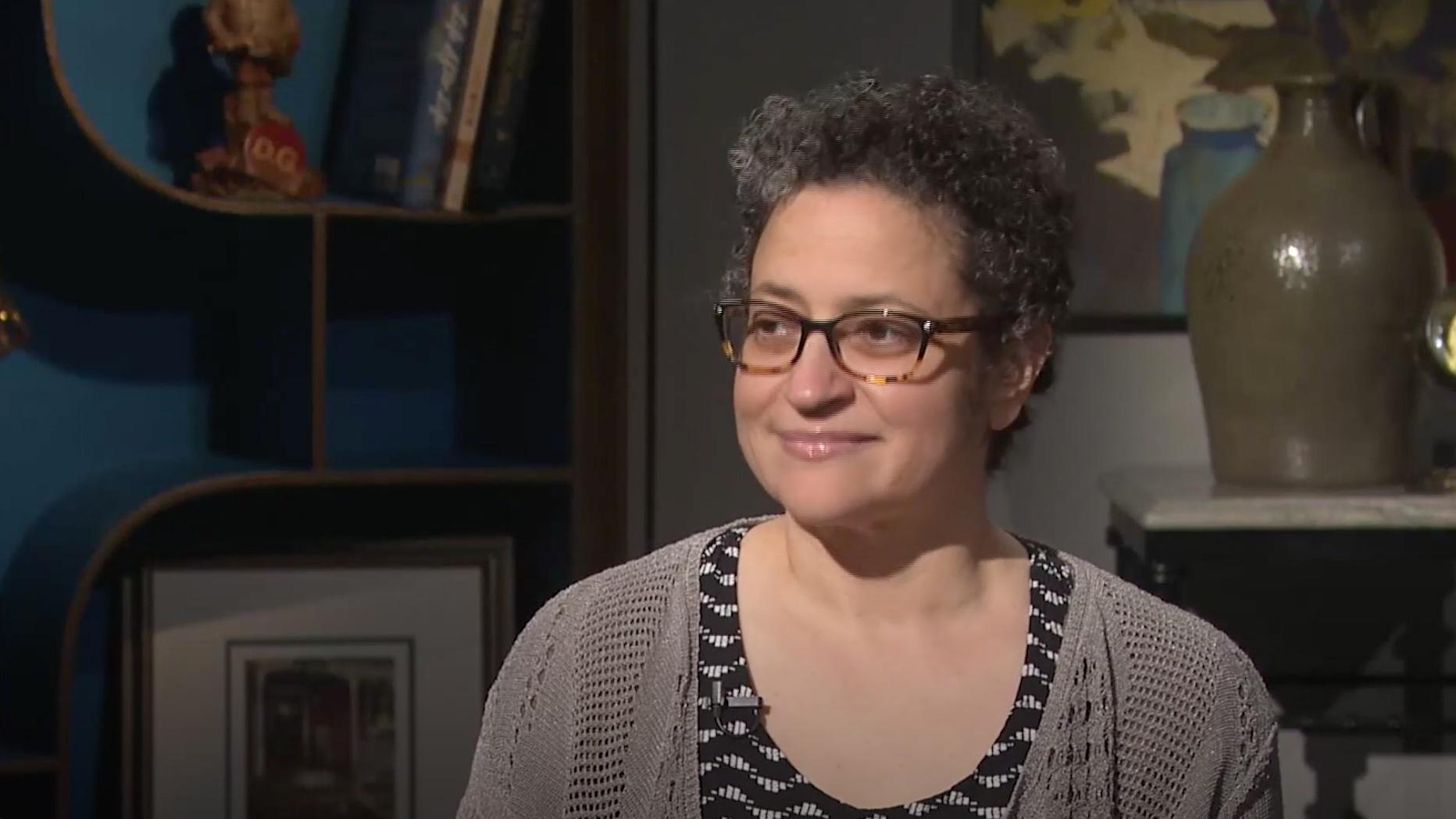
NC Bookwatch
NC Bookwatch host DG Martin sits down with Malinda Maynor Lowery to discuss her book "The Lumbee Indians." Dr. Lowery wrote this book to help non-historians better understand the history of this deeply-rooted NC tribe & its community. (Premiered June 25, 2019.)
NC Weekend profiles Cherokee woodcarver Billy Welch at his studio in Robbinsvile.
The Fading Voices Festival in Robbinsville celebrates Cherokee culture and traditions.
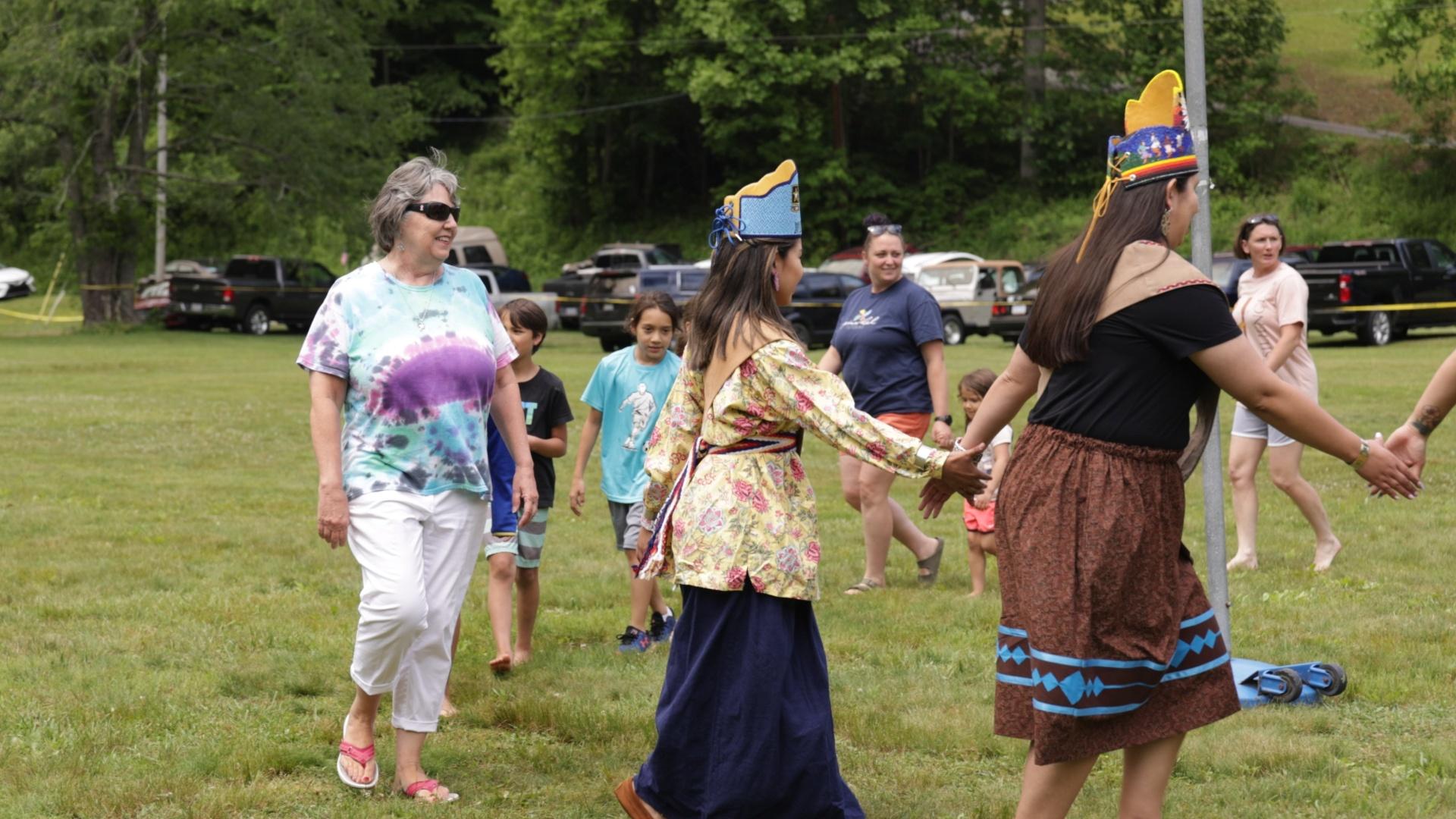
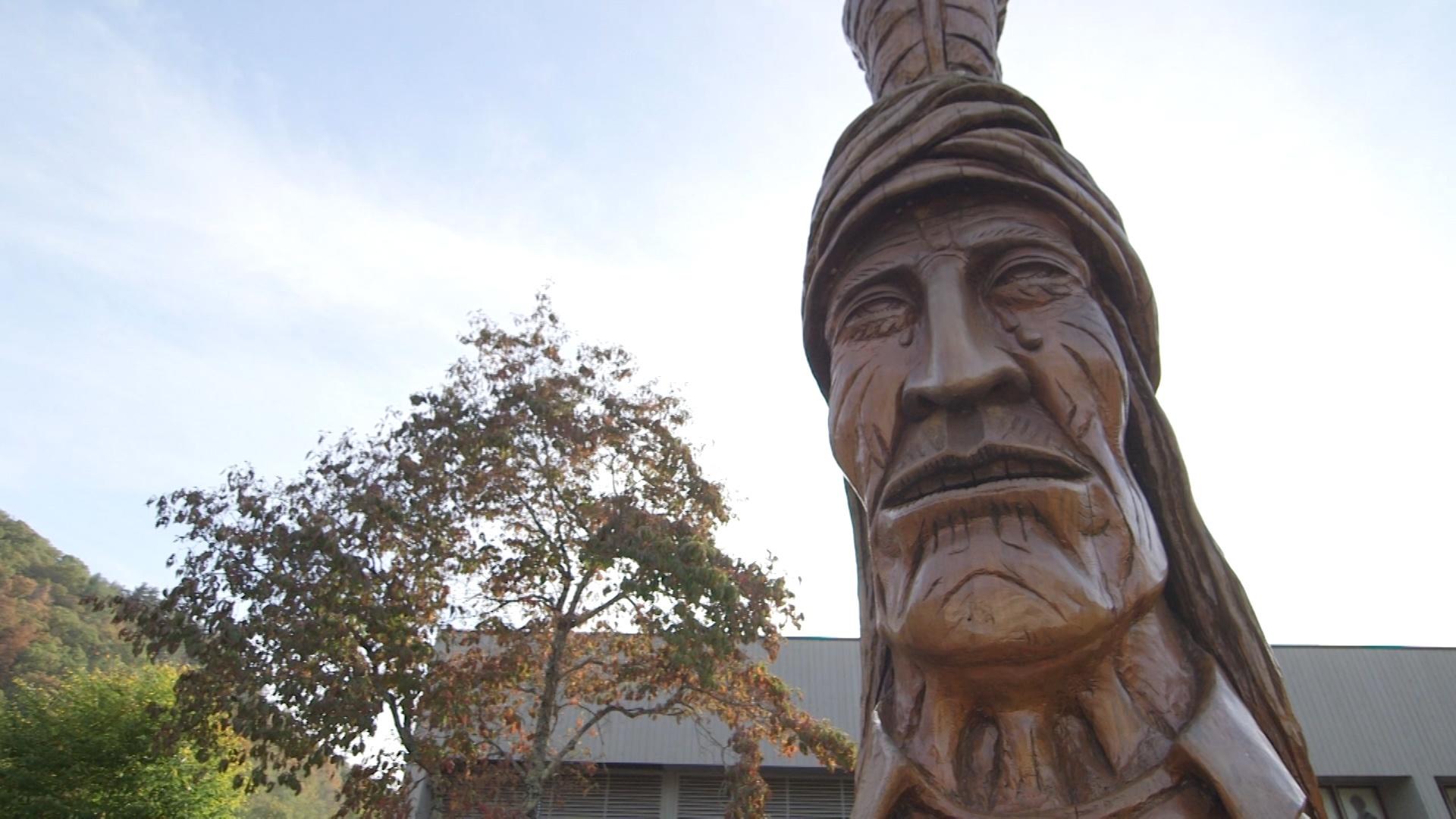
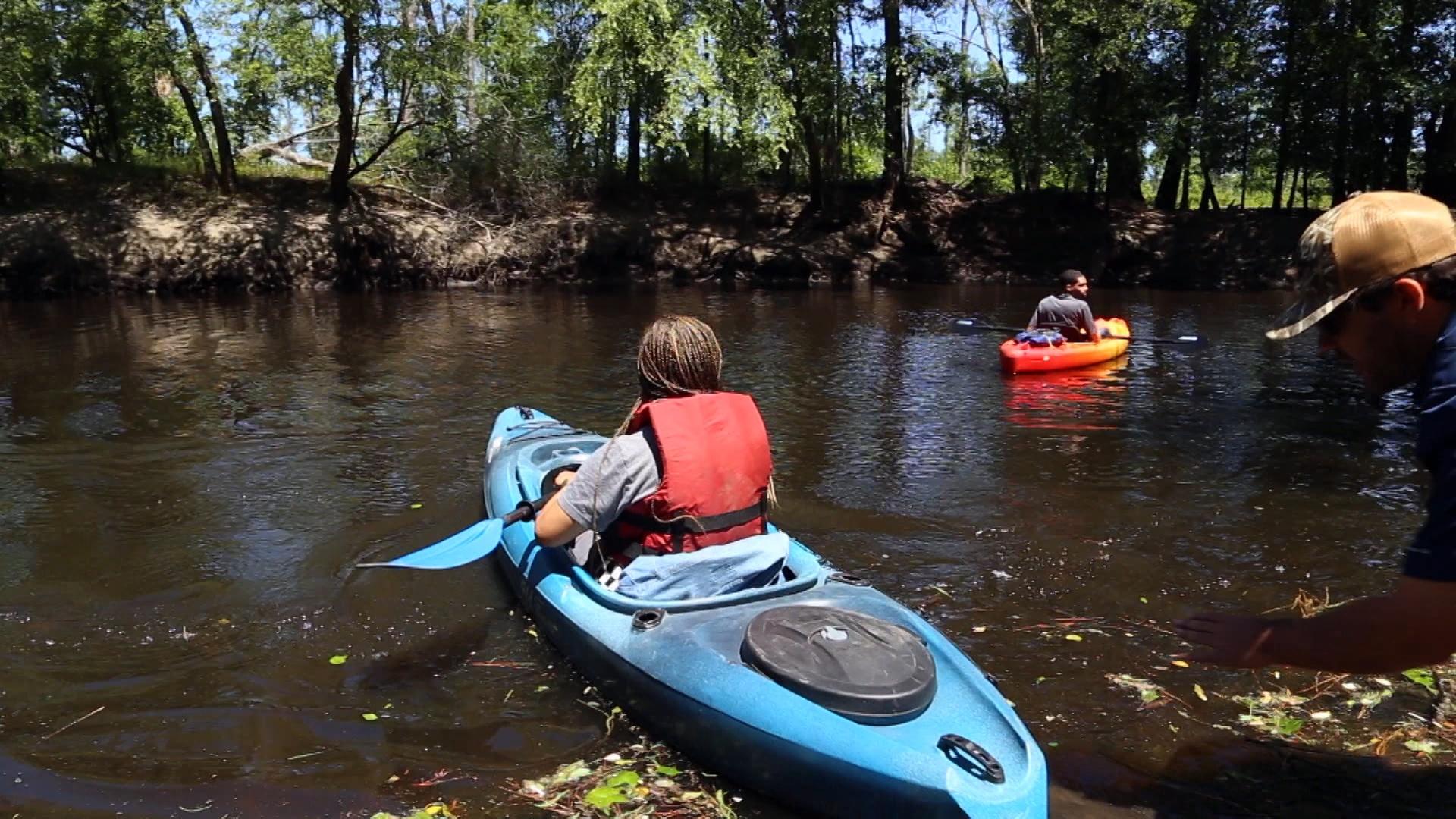

UNC Pembroke has a rich tradition of service to the southeastern North Carolina region, answering the call in health care, economic transformation, educational access and research. Situated in a community that is 40% American Indian, NC’s only Historically American Indian University offers unique pathways for students to enhance the lives of their neighbors through advancements in health care, agri-business and agricultural sciences and Alzheimer’s/Traumatic Brain Injury research. Sustainability, heritage and community drive agricultural research and agri-business programs as students and local farmers work collaboratively to improve business practices and profitability in the state’s agricultural sector while creating tomorrow’s workforce and supporting our food systems.
UNC Pembroke undergrad research takes a closer look at TBI and memory disorders.
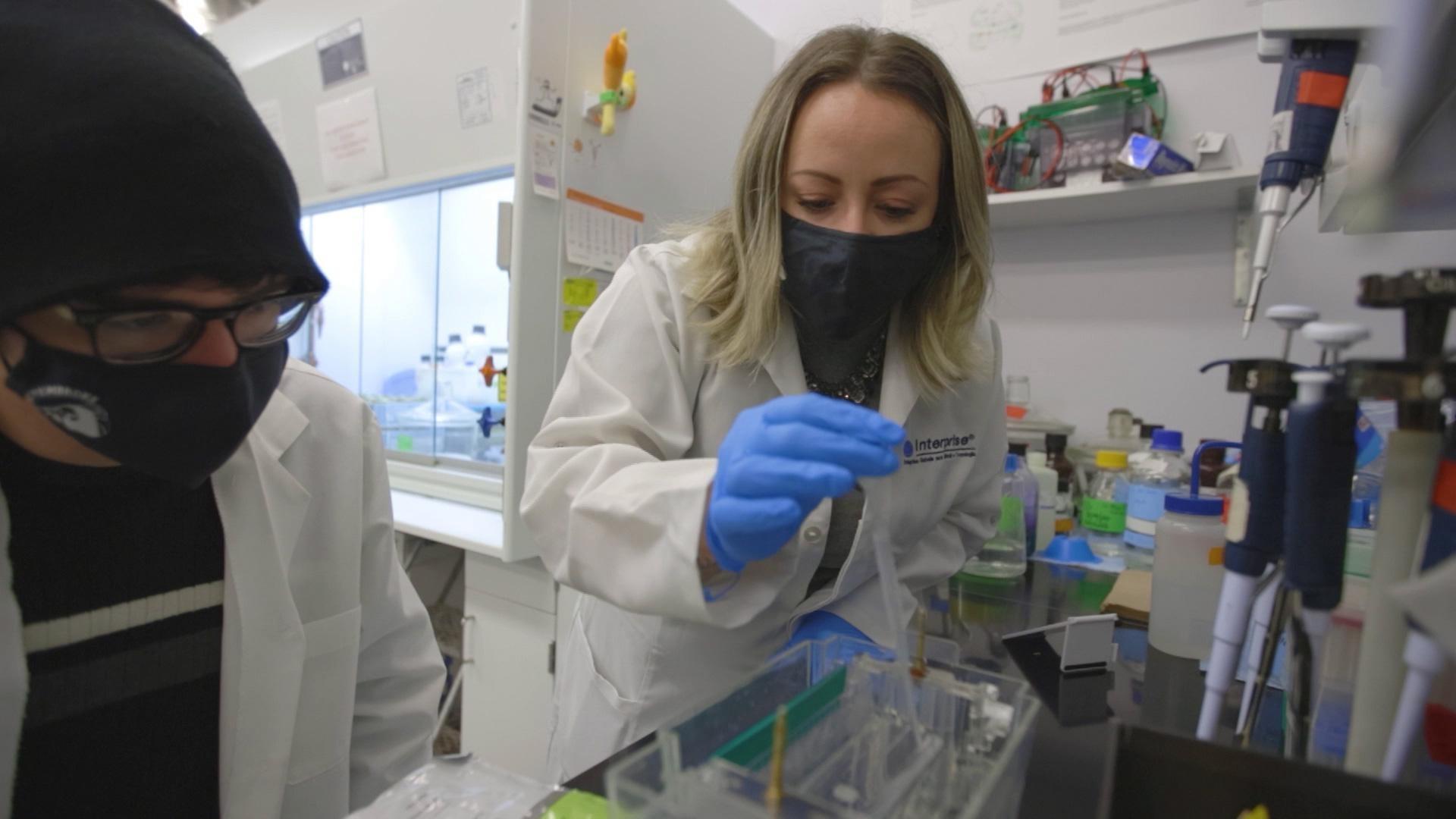
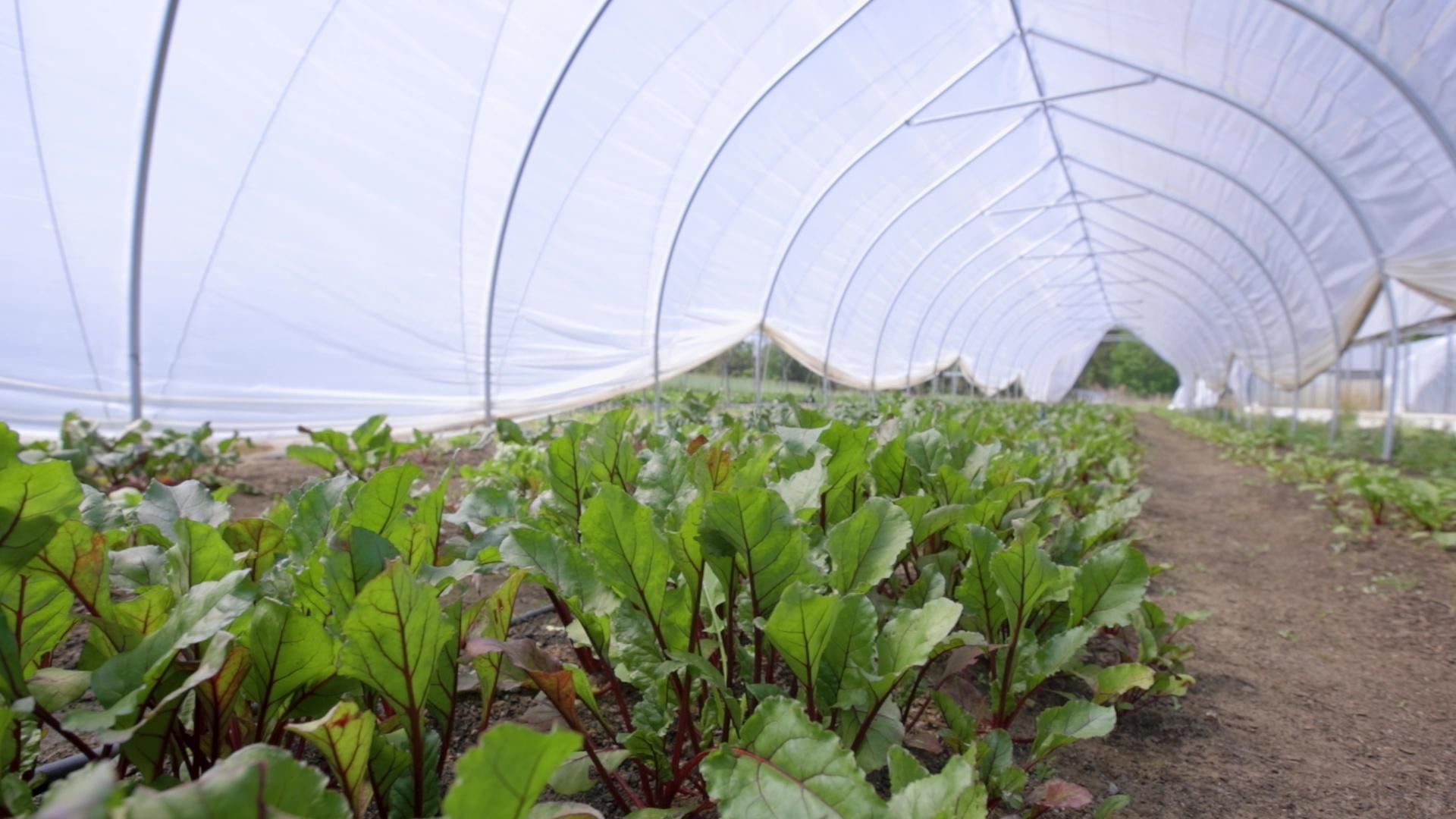
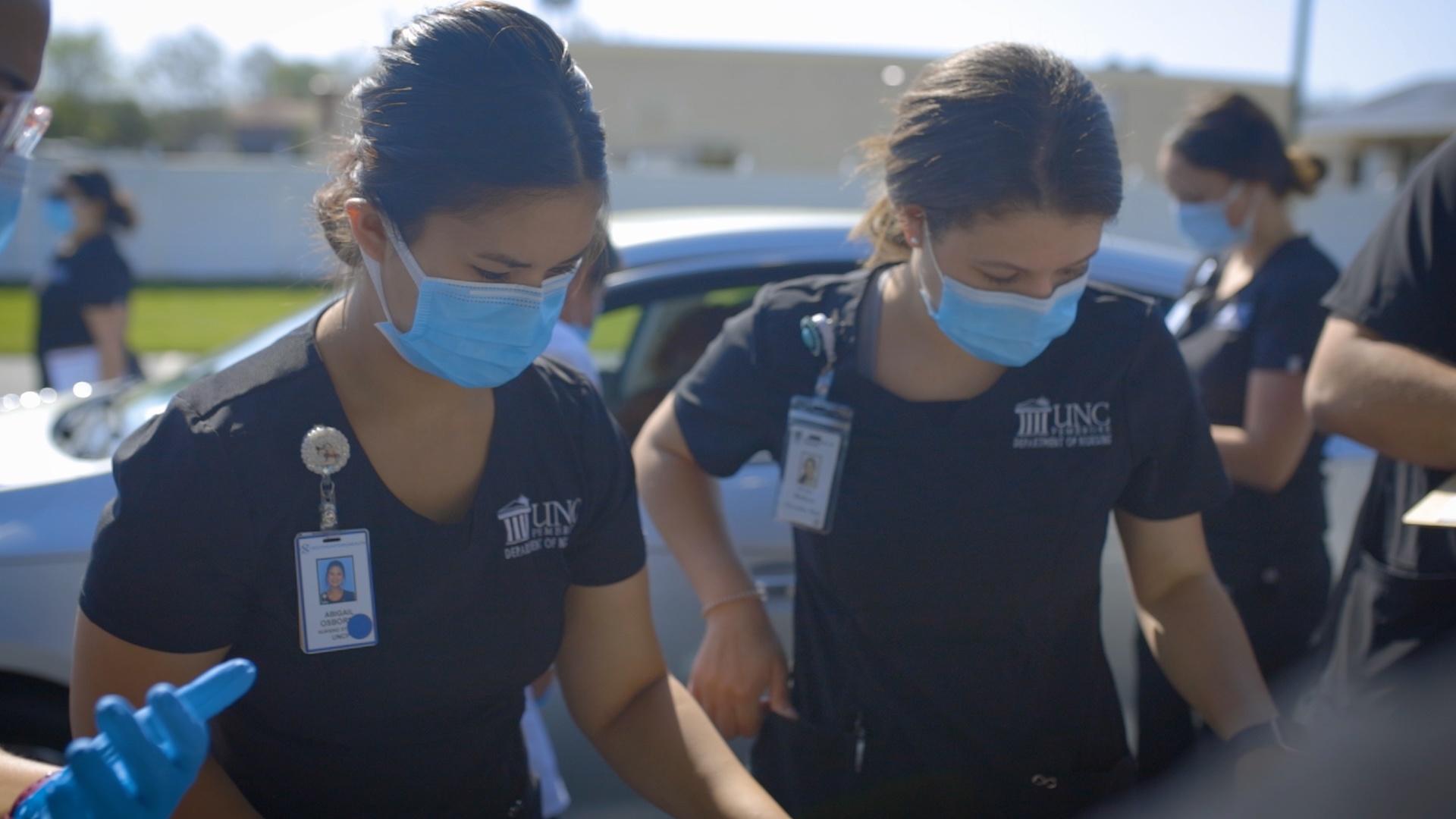
Albert Bender is a writer, activist and attorney of Cherokee descent. Currently based in Tennessee, he has long been an advocate for Native American cultural preservation and justice. He shares his "Brief But Spectacular" take on Indigenous cultures and struggles.
In Hollister, artists Karen Lynch Harley and Phillip Harley and members of the Haliwa-Saponi create two murals with carved wood features that highlight the achievements of its community in the face of colonialism and segregation. The murals act as a catalyst for conversation and a visual commentary of the community’s past, present and future.
Streaming now on video.pbsnc.org & the PBS Video app.
In Robbinsville, artists Doreyl Ammons Cain and TJ Holland create with the Snowbird Cherokee a narrative mural honoring “Beloved Women of the Tribe.” This community is known for resilience, having hidden in the mountains to escape the forced removal of their people during the Trail of Tears. Direct descendants of the Snowbird Cherokee also contribute portraits of their tribal ancestors.
Streaming now on video.pbsnc.org & the PBS Video app.
Canadian DJ collective A Tribe Called Red combine Native American drum circle sounds with electronic music to create Electric Pow wow. Nahre Sol travels to Toronto to meet A Tribe Called Red to learn how they blend native sounds and electronic music. LA Buckner meets with Iron Boy drum circle in Minnesota to watch a live performance and learn about their sound.
Streaming now on video.pbsnc.org & the PBS Video app.
Native American representation in film and TV used to be confined to Westerns and storylines of defeat. Today, a new wave of Native American comedies, written and created by Native peoples, are taking back their narratives. Shows like Reservation Dogs and Rutherford Falls challenge stereotypes and address big political movements like #LandBack.
Streaming now on video.pbsnc.org & the PBS Video app.
In this short, filmmaker Ben-Alex Dupris explores how the reality and resistance of Native Americans inspire the work of Pawnee artist Bunky Echo-Hawk, igniting discussions about environmentalism, Native rights, and numerous other current topics.
Streaming now on video.pbsnc.org & the PBS Video app.
Meet three talented young Indigenous chefs — Brian Yazzie, a Navajo/Diné chef originally from Arizona, now based in Minnesota; Kalā Domingo, a Hawaiian culinary student and heir to his dad’s catering throne; and Hillel Echo-Hawk, a Pawnee-Athabaskian chef and caterer in Seattle – all preparing foods from their native cultures that sustained their communities for generations. From wild rice bowls and sumac duck confit to poke and imu-cooked kalua pig, to honey Lakota popcorn, see how cooking connects each of these chefs to their own histories, and what they in turn can teach others with mouth-watering delicacies.
How This Navajo Chef Brings His Native Food Traditions Back
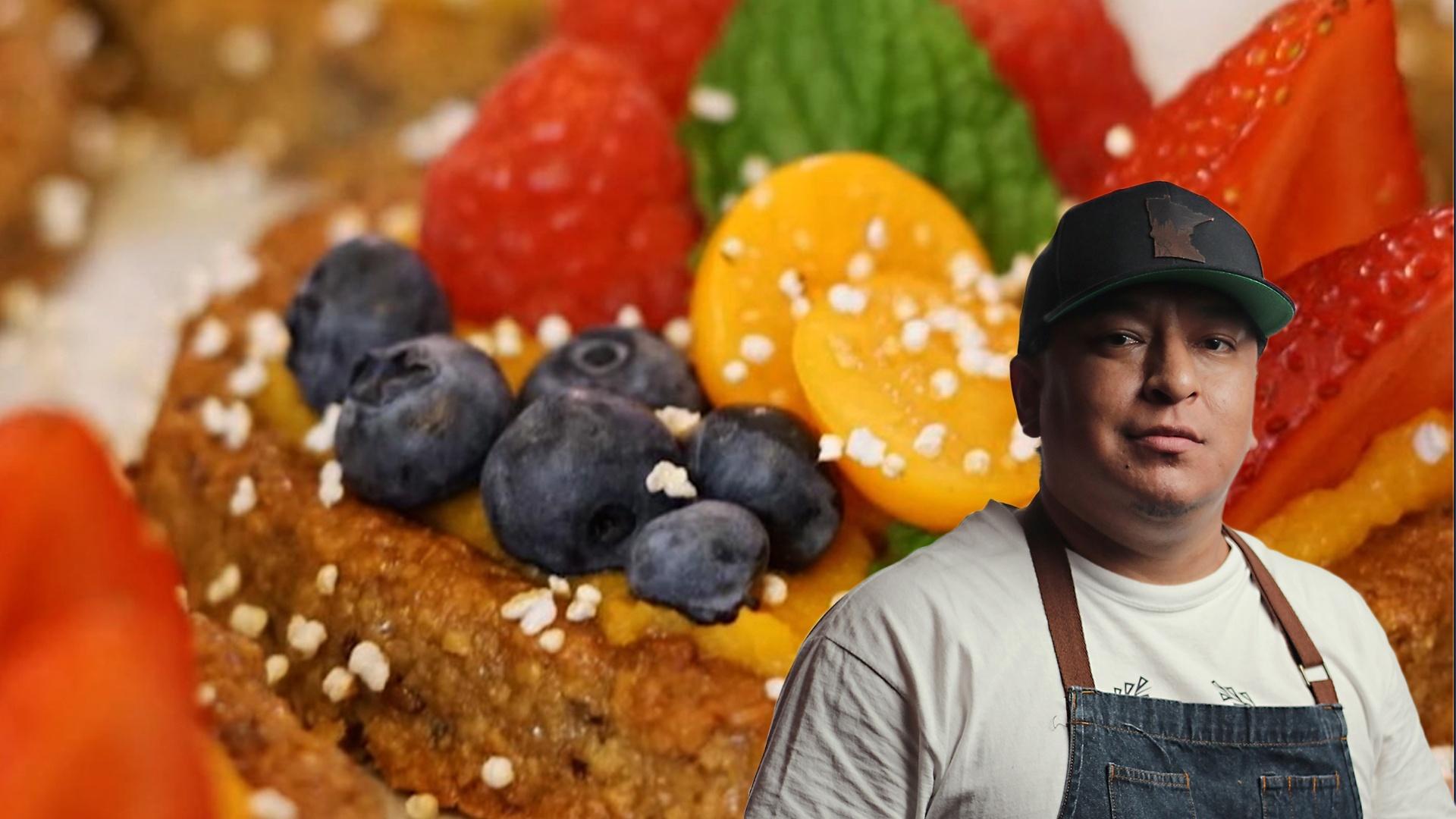
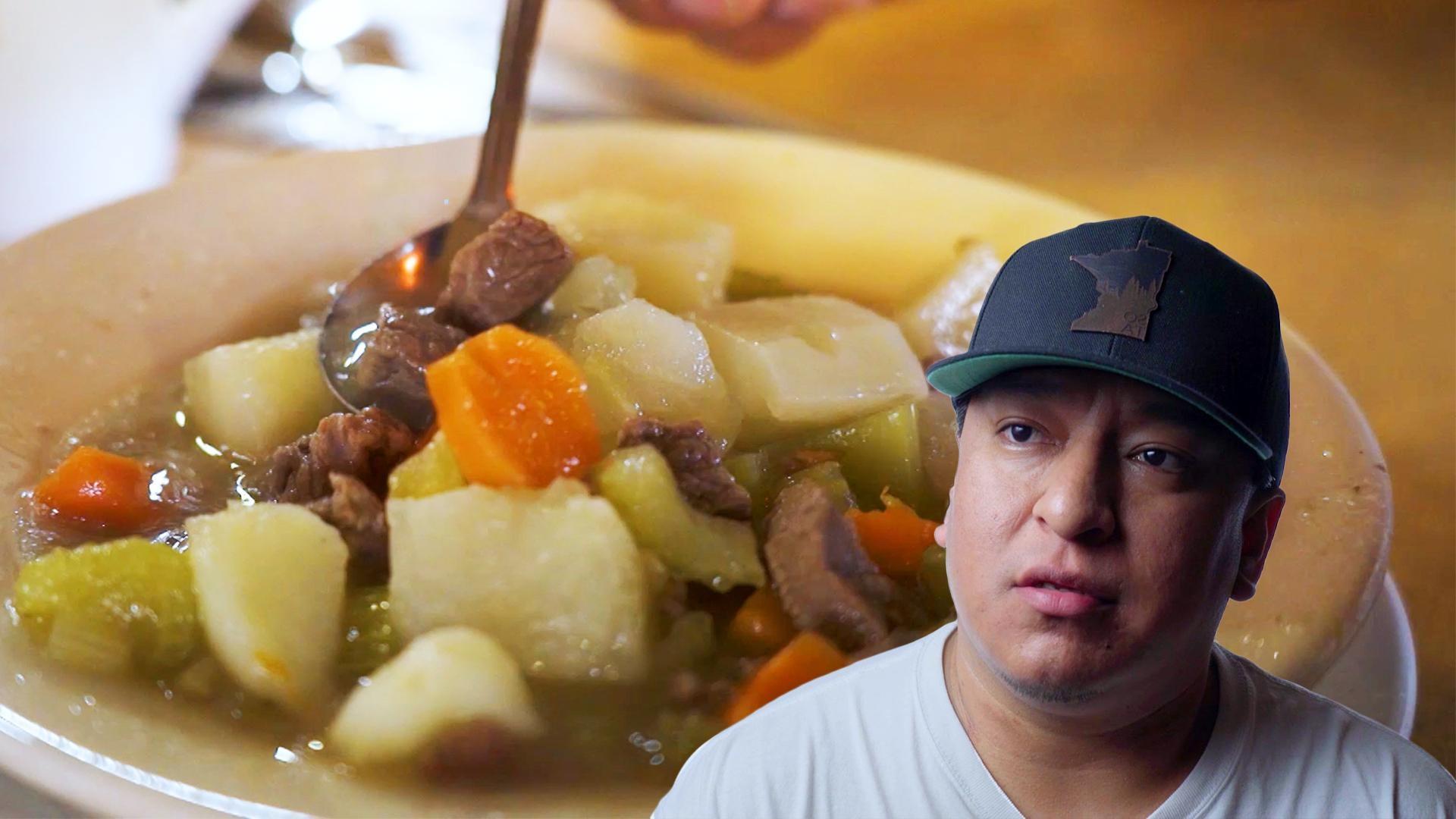
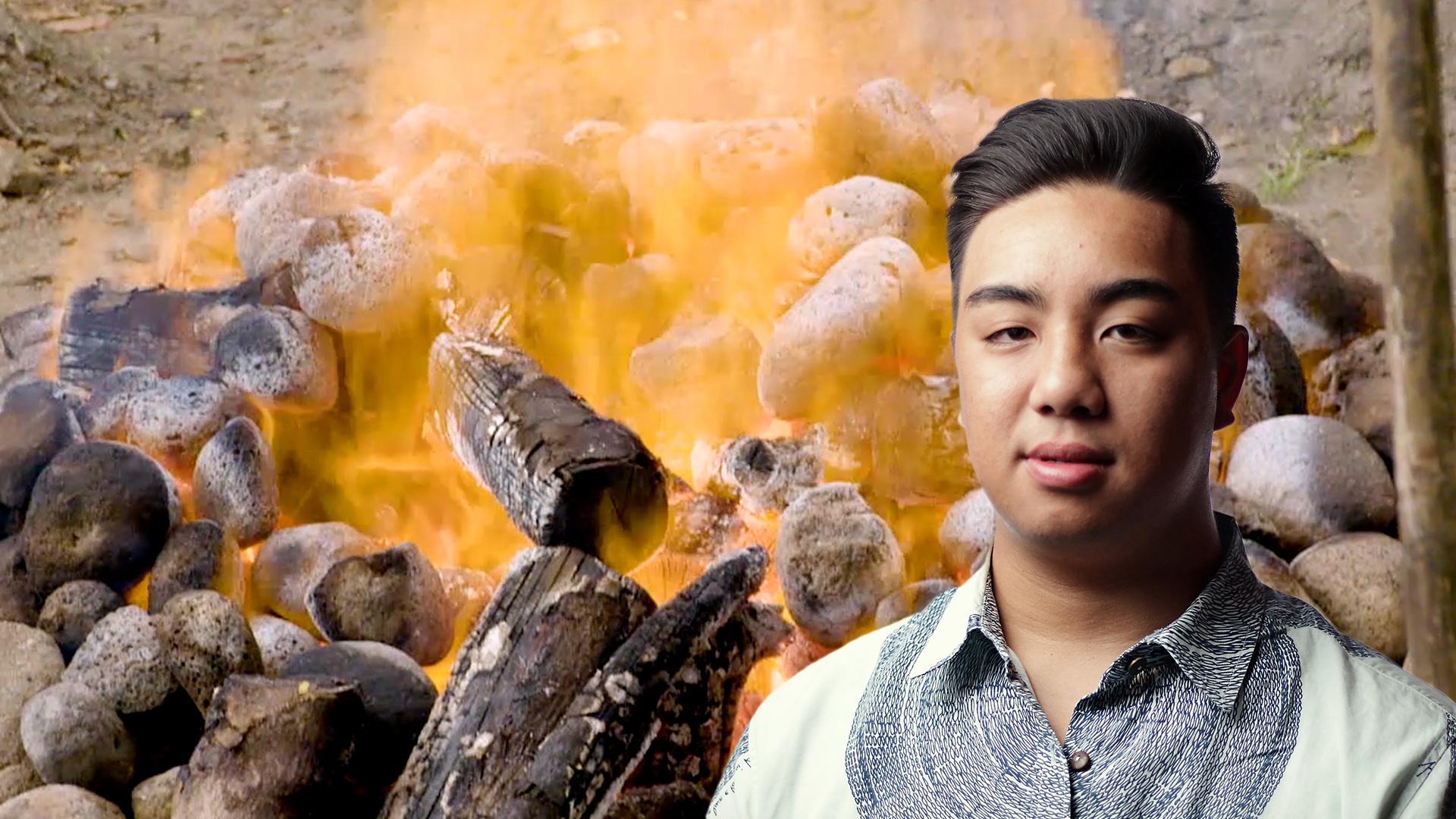
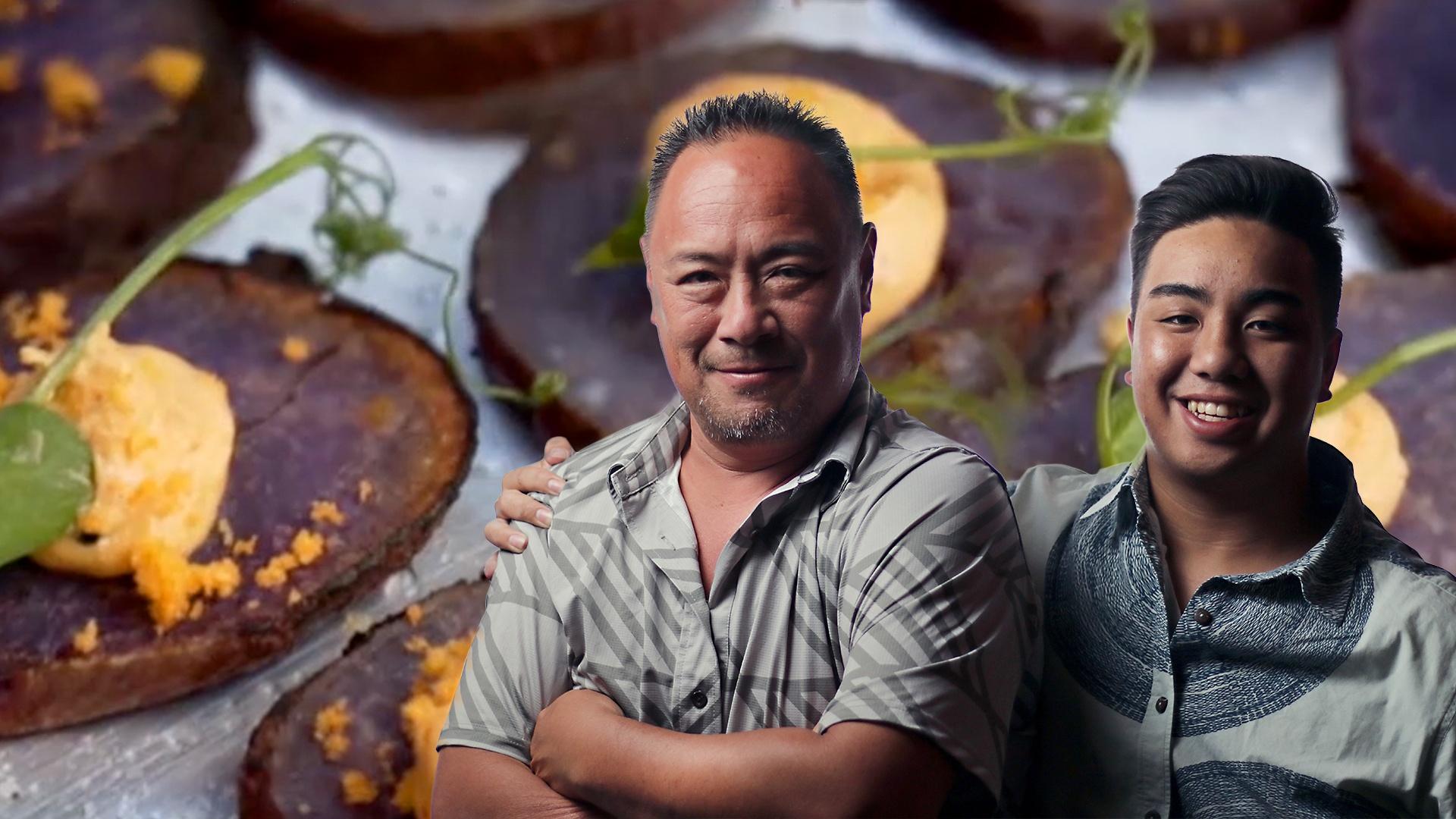
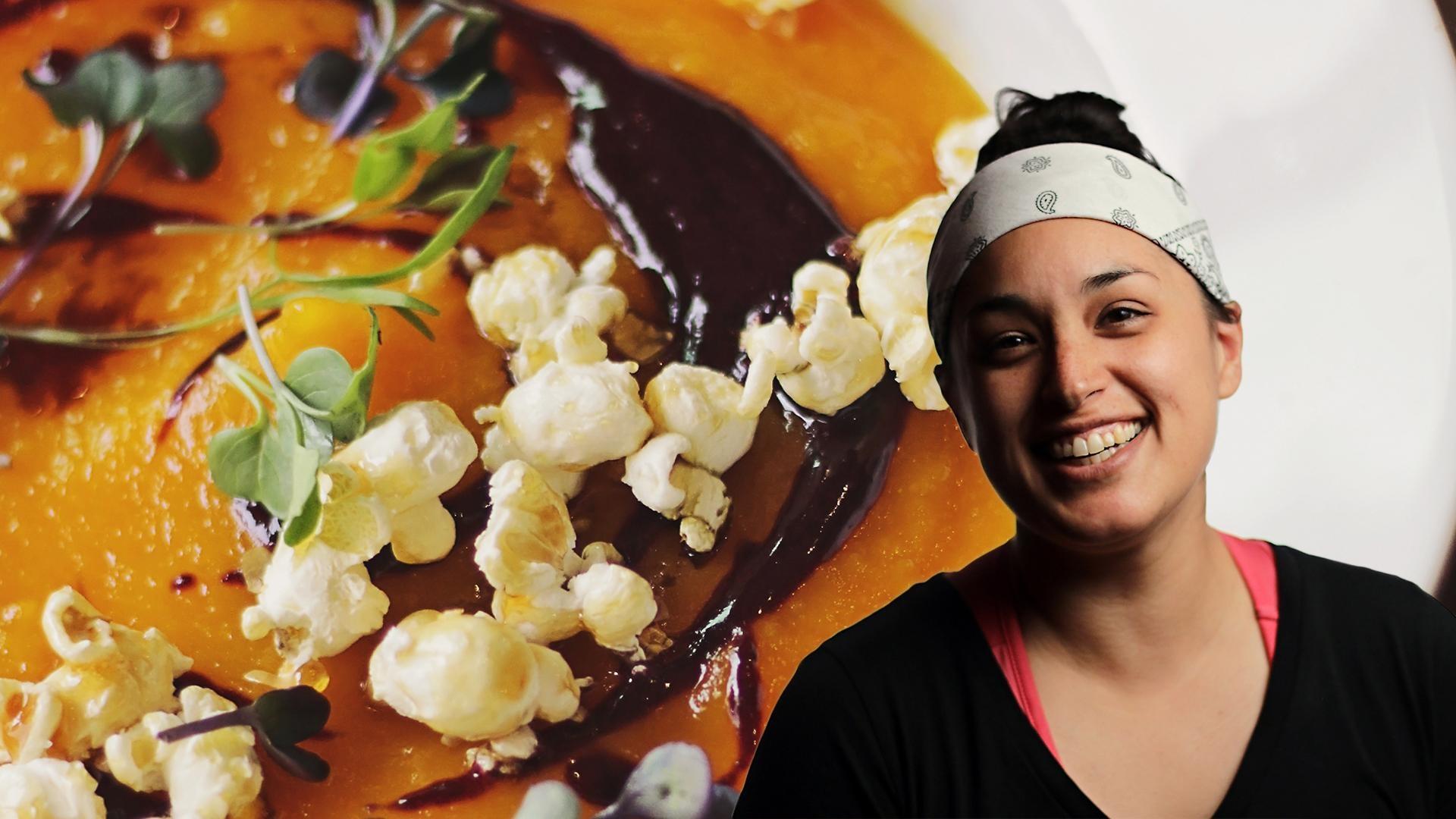
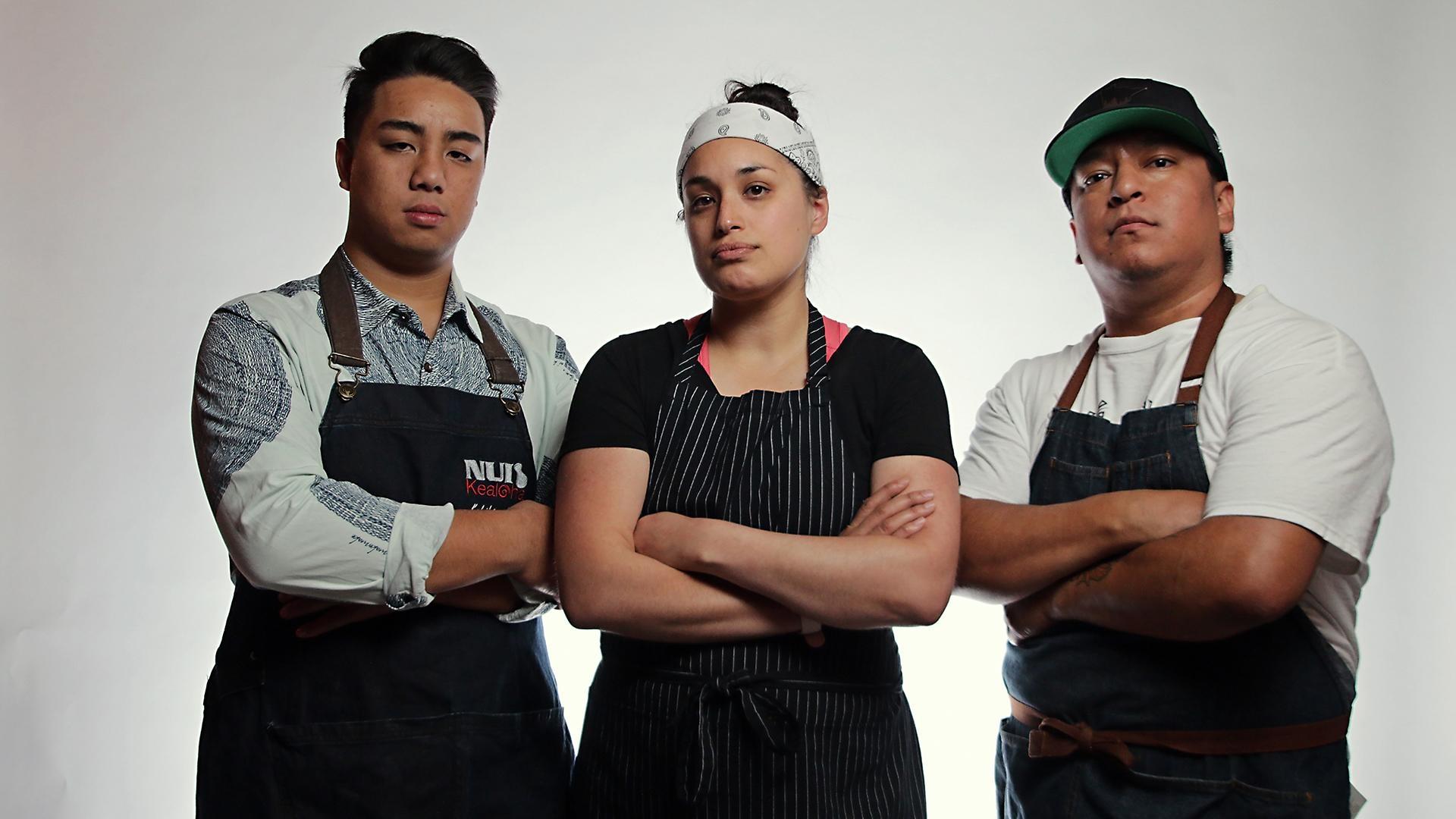
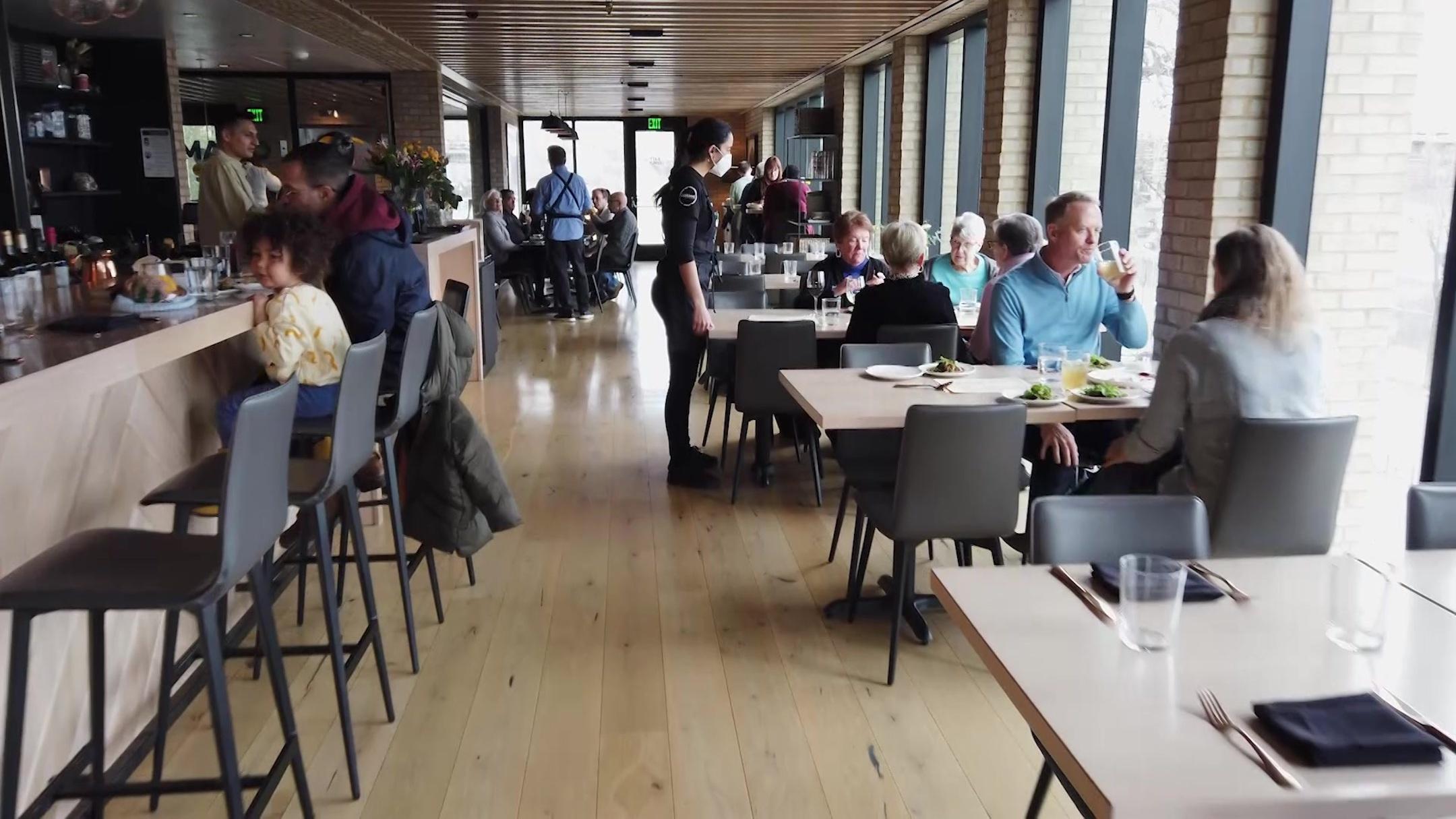
PBS NewsHour
The pandemic took a particularly heavy toll on the restaurant business, with tens of thousands shutting their doors for good. Special correspondent Fred de Sam Lazaro visited one unusual establishment that’s bucking the trend, and reviving Native American food traditions that disappeared after European settlement in North America. (Originally reported May 5, 2022.)
Indigenous Enterprise, made up of a new generation of Native American Powwow dancers from across the U.S. and Canada, is on a mission to bring Native culture to new heights and audiences. In just seven years, the dance troupe has built an international following, competing in the fourth season of NBC’s prime-time show World of Dance, performing in a music video with Taboo of the Black Eyed Peas, and dancing for thousands of basketball fans at the NBA finals in 2021. The dancers have been featured in Vogue and the New York Times, and recently attended the Met Gala, where Shirley and fellow dancer Dominic Pablo showed up in full regalia.




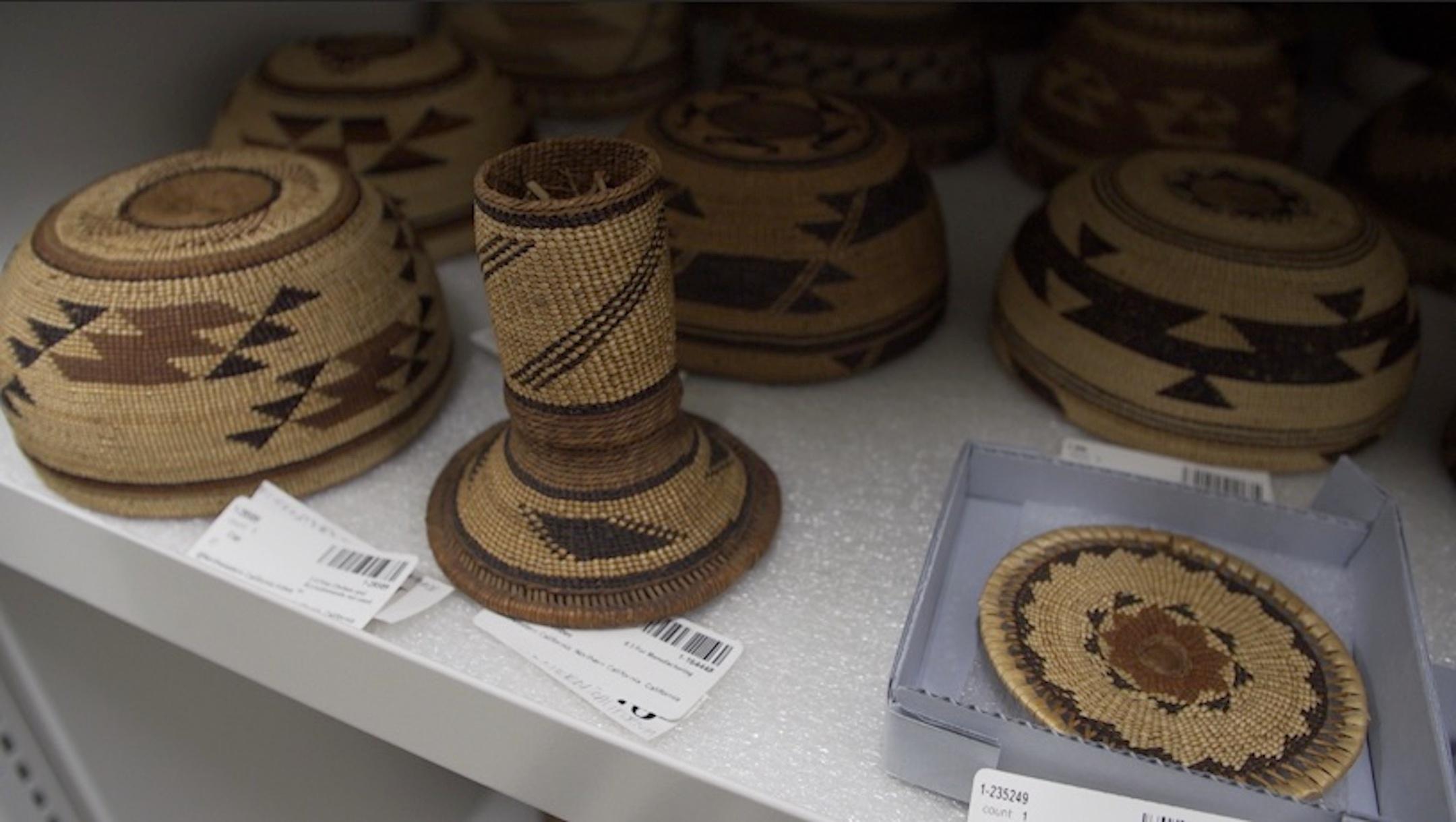
PBS NewsHour
The studying and exhibiting of human remains and sacred objects taken from Native American graves and sites have been a source of bitter relations between many cultural institutions and Indigenous tribes. After facing criticism, the University of California-Berkeley is working to repatriate many of those artifacts. Jeffrey Brown reports. (Originally reported October 10, 2022.)
